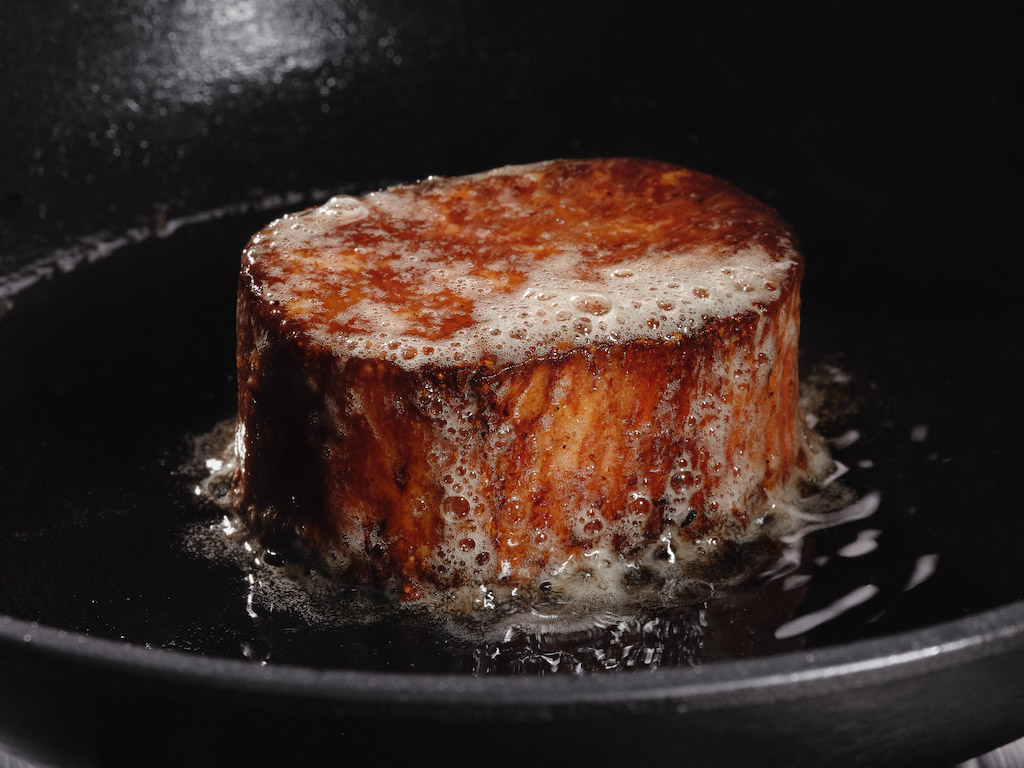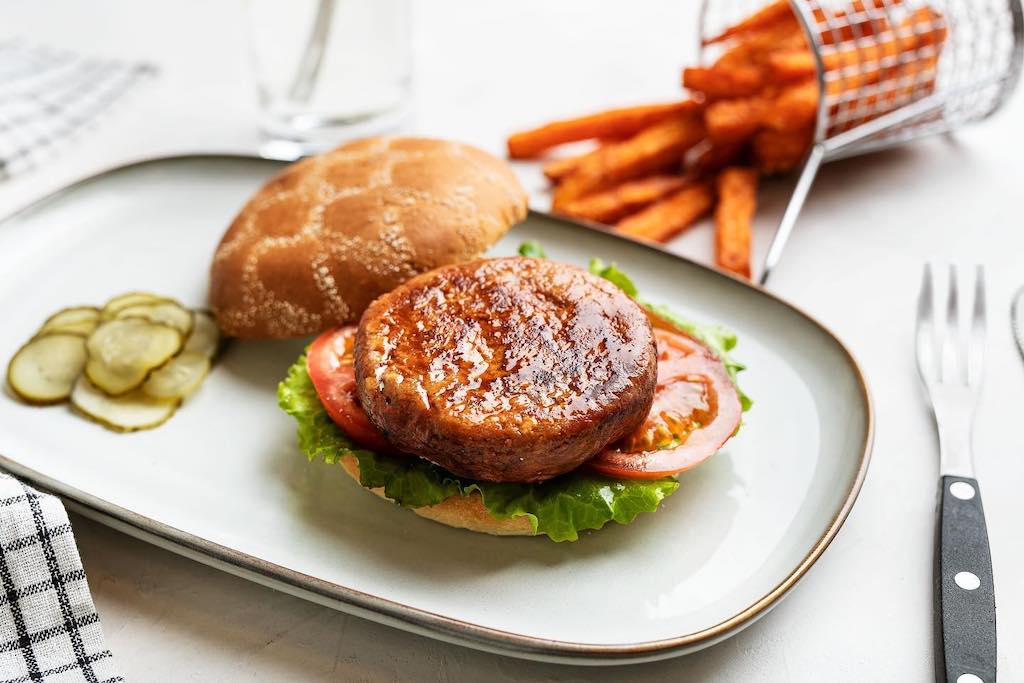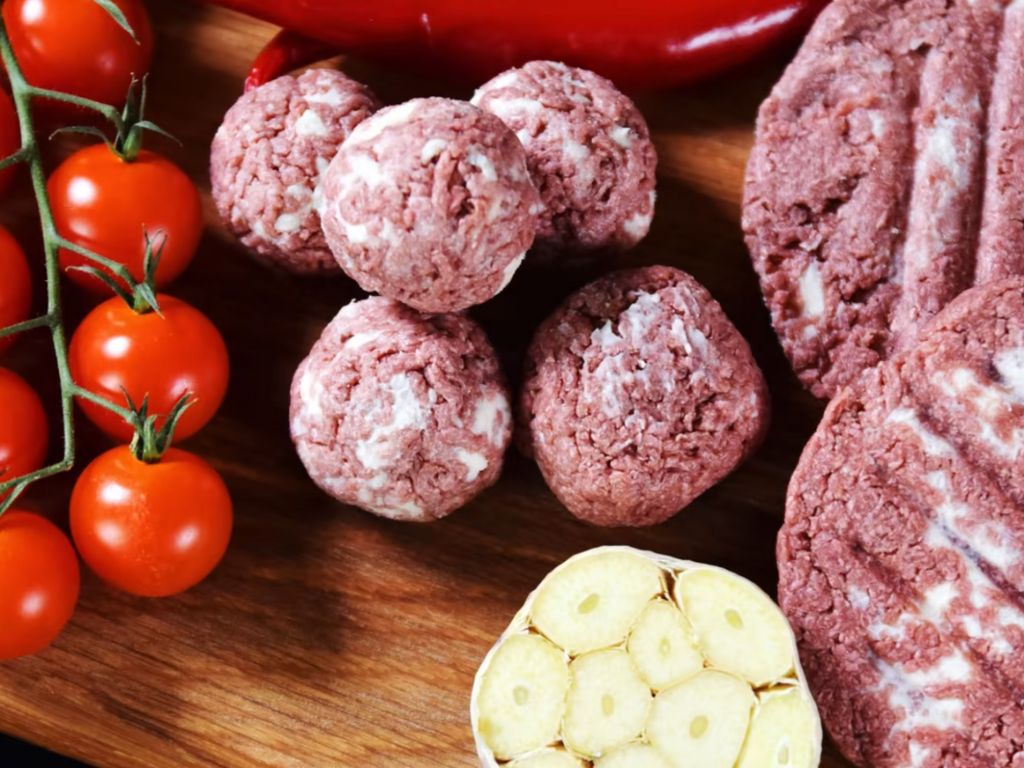3 Mins Read
Following its release in 2021, Sweden’s Mycorena says its fungi-stabilized sustainable fat dubbed Mycolein, is now available for sale.
Mycorena first announced its fungi-based fat that mimics animal fat in late 2021. The product earned high praise for its superior behavior and sensory qualities that outperformed plant-based fats such as coconut oil. The product, which is being marketed as Mycolein, is now ready for its retail launch under the company’s mycoprotein brand Promyc, currently available across select European stores.
“Recognising the challenges faced by our partner food companies in sourcing a stable fat ingredient, in 2021, we launched the first fungi-stabilised fat as a prototype product,” Ramkumar Nair, Founder & CEO of Mycorena, said in a statement.
‘Unparalleled benefits’
“At that time, we were still determining the product’s scalability, as has been the case with many similar products launched in the market. And now, after nearly 1.5 years of development, we have successfully created a full-scale process for producing the product and are fully prepared to launch it commercially,” Nair said.
The product underwent extensive trials and tasting with plant-based partners including the vegan steak producer Juicy Marbles.

“We are incredibly grateful to our partner companies who have supported us with extensive verification and product development trials. It’s satisfying to hear that the addition of Mycolein has elevated their products’ palatability and sensory offerings,” Nair said.
Mycorena says the product is now better than ever and holds significant potential for improving the sustainability of the food sector. Mycolein offers “unparalleled benefits,” the company says, due to its versatile nature that enhances the juiciness and flavor of any food product, including plant-based and alternative protein and meat products, “with superior qualities similar to animal fat or as a healthier fat in meat products.”
A healthier vegan fat
Compared to animal fats and popular vegetable fats, Mycolein has a better nutritional profile and delivers the same, or even better organoleptic results, “making it a healthier and more desirable option.”
Unlike most fats, Mycolein is also a source of dietary fiber, offering more than a 40 percent fat reduction compared to other fats. The clean label fat also contains very little saturated fat — 85 percent less than coconut fat. It joins a burgeoning designer fat category that’s seeing fermentation and cell tech advance sustainable alternatives to animal fat and palm oil.

“Our fat solution stabilises emulsions, locks in all of the product’s flavours, and maintains its juiciness during cooking. Compared to conventional vegetable fats, our solution is healthier. In addition, the tailored recipe of our solution allows for the introduction of additional flavours and fortification, such as Omega 3,” says Joan Lluch Casarramona, Food Specialist at Mycorena.
According to Mycorena, using mycelium biomass in its Mycolein is a novel use of the material, something the company says can revolutionize the industry. The company already operates the largest mycoprotein factory in Europe.
“The potential applications of this technology are limitless. While we initially focused on enhancing food products through fat solutions, this is only the beginning,” says Sandra Zachrisson, Head of Product Innovation at Mycorena. “Our ultimate goal is to leverage this technology to unlock new, sustainable solutions for food manufacturing.”



